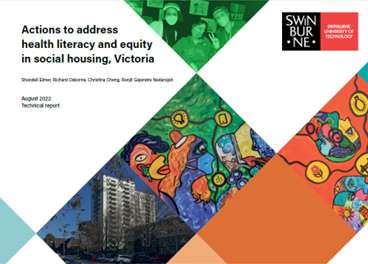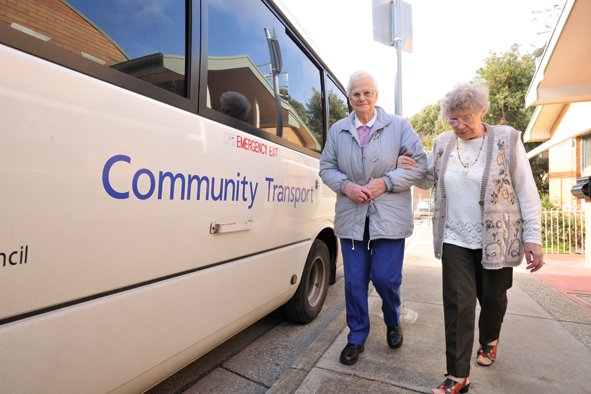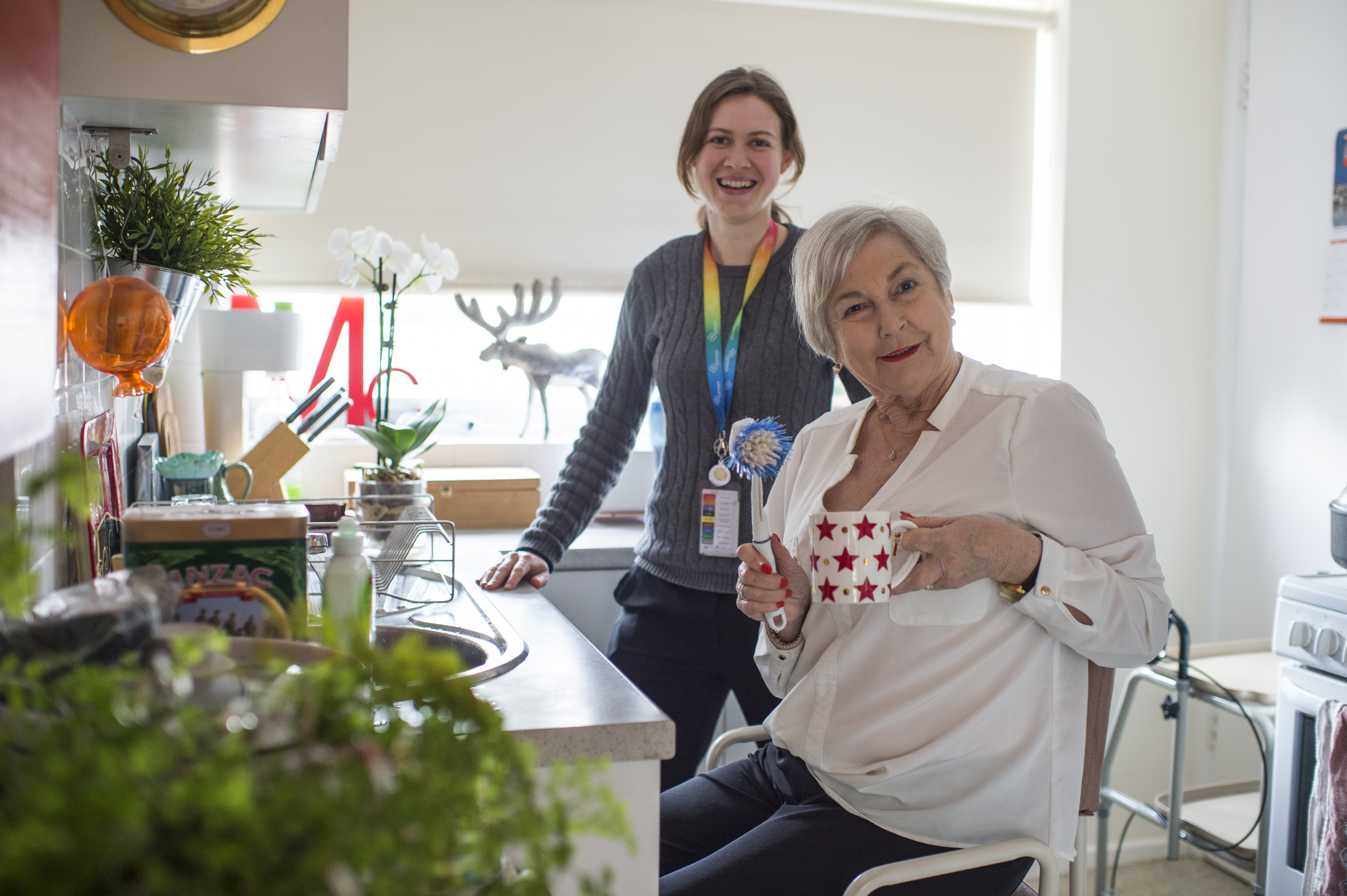Select from the following services
New social and public housing research led by Swinburne University of Technology, in collaboration with Connect Health & Community, Star Health, Merri Health, Peninsula Health and Bendigo Community Health Services, offers unabashed insight into the situations many Victorians found themselves in during the pandemic.

The High-Risk Accommodation Response program was co-designed by the Victorian Dept of Families, Fairness and Housing and community health providers across the state, to engage with and respond to the needs of vulnerable communities during the multiple COVID peaks and outbreaks in these settings. The voices of more than 800 residents reveal the challenges, their fears, and the strength and resilience that helped many residents prevail, despite significant adversities.
The study, led by Dr Shandell Elmer of the Centre for Global Health and Equity, sought to understand residents’ health literacy, including what they knew and had been told about COVID-19 and keeping safe. The study also worked with frontline community health workers to uncover what they did to understand residents’ requirements and assist them.
At times when the risk of being infected with Covid-19 was ever-present, for some people, their daily struggles with social, economic and physical conditions, including family violence, poverty, food insecurity, loneliness, drug and alcohol use, took precedence. A key finding of the research is that local community health services are critical for successful communication and engagement in these settings.
Residents have profoundly diverse needs and flexibility of both the range of services, and ways to access these services, contributes to receiving the right service. The project has had immediate impact on many residents through enabling frontline workers to better understand the needs of the residents, assess whether services were meeting their requirements and realign services and delivery while operating within a major public health emergency.
The report, Actions to address health literacy and equity in social housing in Victoria, makes recommendations for actions on how governments and health services need to respond, and what can be done to understand and support people living in public housing settings who may experience overwhelming challenges. These actions include improving the health literacy responsiveness of the system, reducing digital exclusion, ensuring proactive and flexible interactions and improving the connections between the different parts of government and services sectors.
Amanda Murphy, Connect Health & Community CEO, said the challenges faced by residents in high-risk accommodation housing were unprecedented.
“The Department of Families, Fairness and Housing asked us to listen to the voices of the residents living in high-risk accommodation settings during the pandemic” she said.
“By working at the grass-roots, community health providers and Swinburne’s Global Centre for Health and Equity, were able to make real connections with residents to discover their harsh realities and enable the system to respond to the very challenging personal circumstances these people faced during the COVID-19.”
“Resident’s told stories of the impact of not being able to use technology, the complexity of trying to manage their mental and physical health challenges, financial hardships and the many unknowns and impacts of forced social isolation,” she said.
“While the research was conducted in the context of the pandemic, the lessons and opportunities of the findings go beyond COVID-19. The importance of this research cannot be undervalued.”
“The significant health and social inequity described in these stories cannot be ignored. We have a once-in-a-generation opportunity to make real change because of this research,” she said.
“The learnings from this Australian-first research should now be used as a blueprint for policy-makers, local government, health organisations and community organisations to build upon as we work to improve the lives of our most vulnerable community members,” she said.
Click this link to read the report
Connect Health & Community is a community health provider in Melbourne’s south-eastern suburbs that has voluntarily amalgamated with Central Bayside Community Health Services and Star Health to form Better Health Network.
-ENDS-
A youth mental health initiative developed with students during Victoria’s lockdowns, is hoped to help reduce the stigma surrounding mental health issues and encourage teens to seek help early.
Read MoreOur Health Promotion team is supporting early learning centers through the Achievement Program, an initiative that helps services create a healthier environment for their students, staff and families.
Read MoreThis Children’s Week, we asked our paediatric team to share some of their favourite activities for kids that embrace the importance of play for a healthy lifestyle.
Read More
Speech pathologists provide assessment and management of communication, swallowing and feeding difficulties.
Read More
We have been offering safe and quality door-to-door transport options to our community since 1975.
Read More
We provide Occupational Therapy to help children, adults and those experiencing mental health issues, to achieve their full potential.
Read MoreSelect from the following services